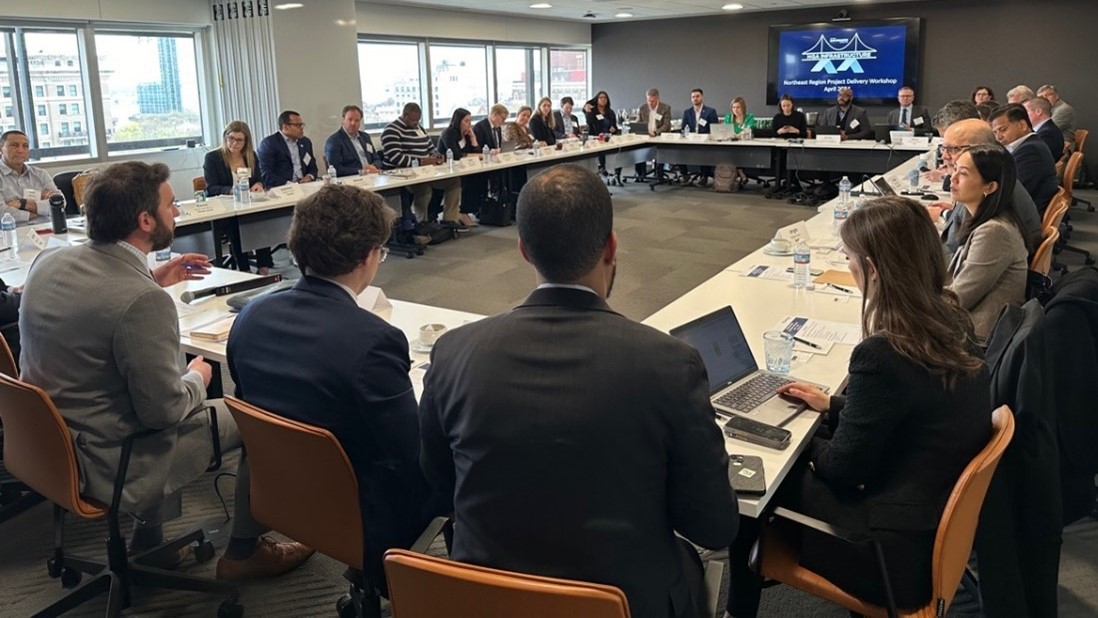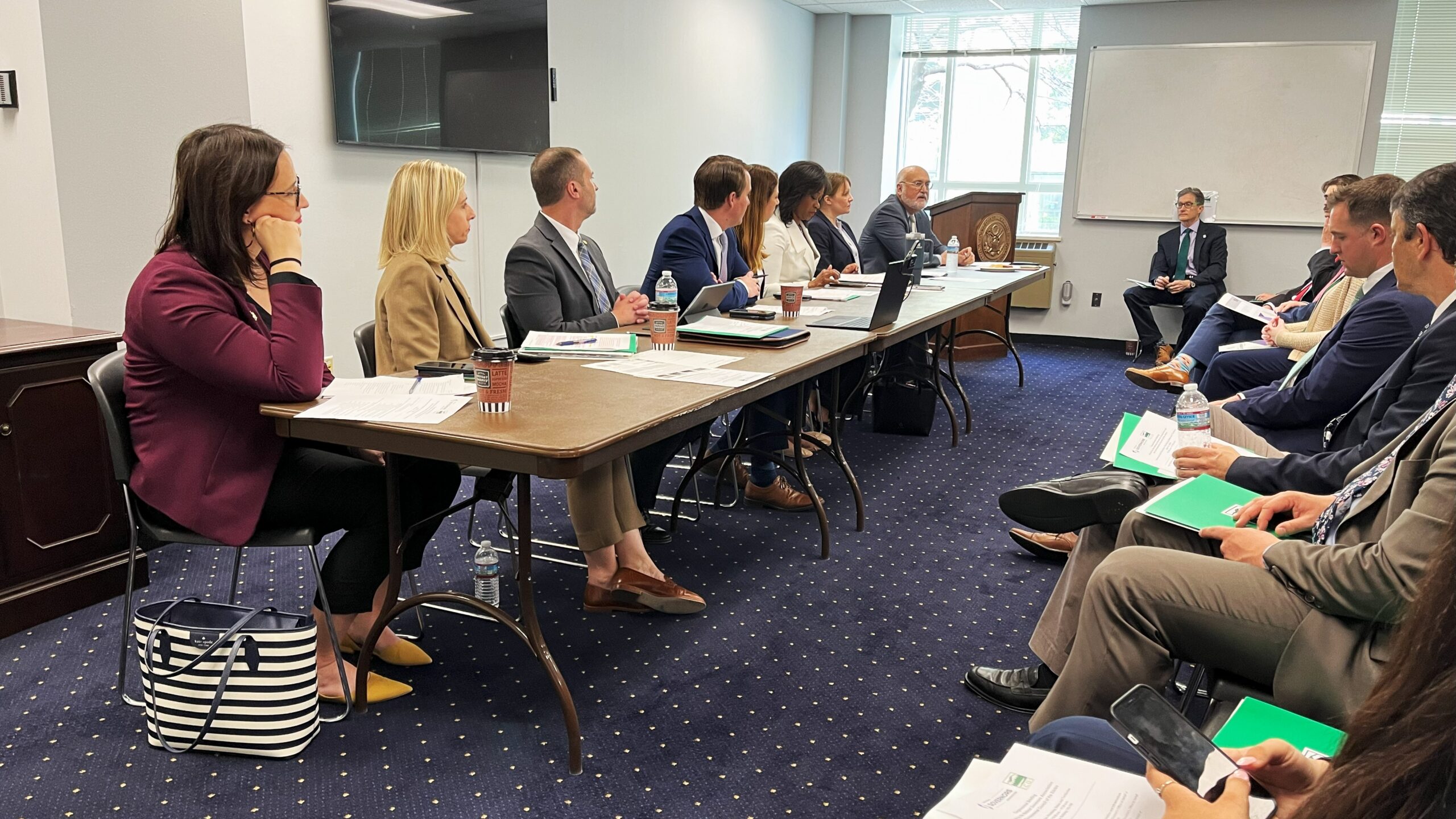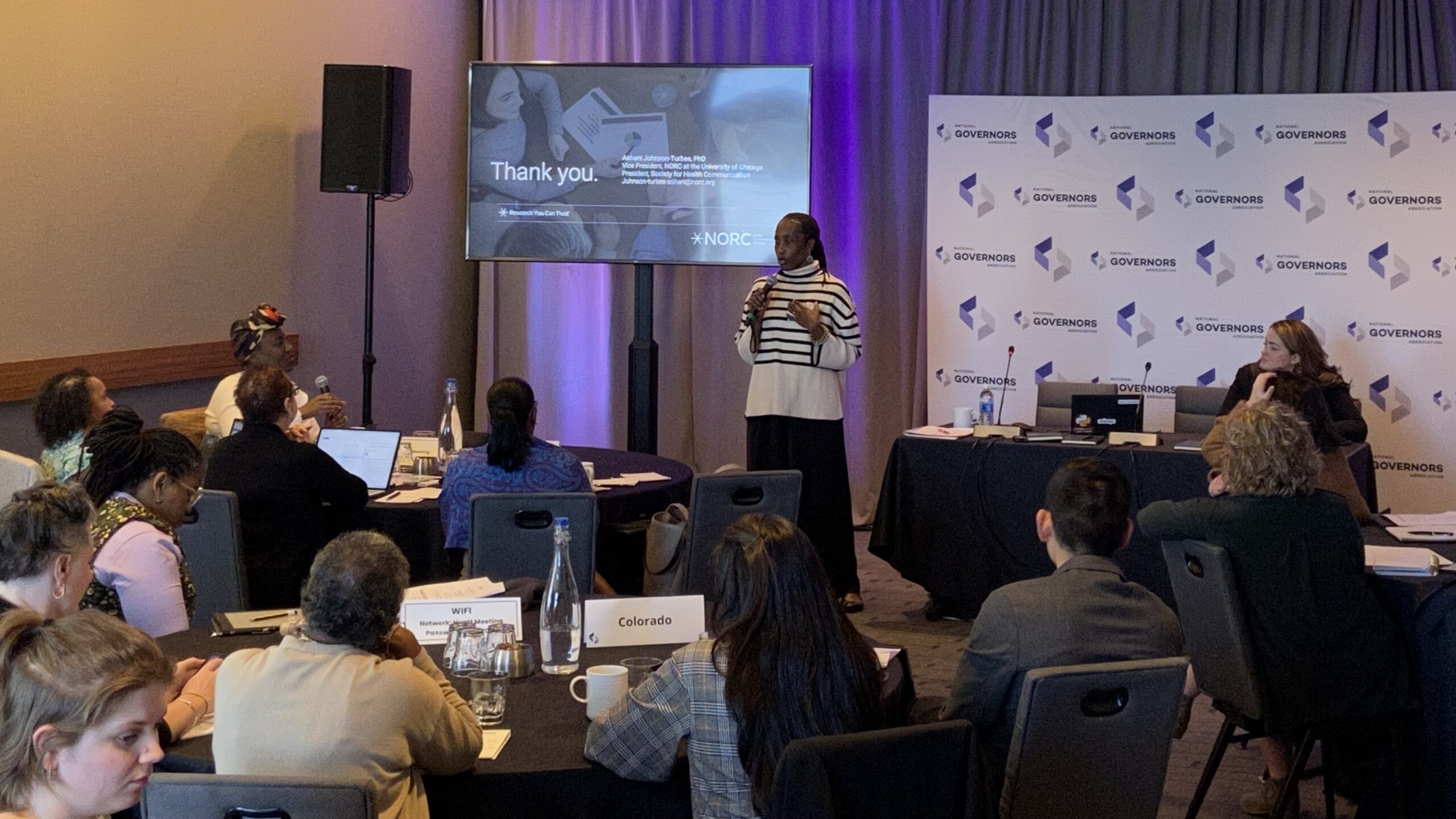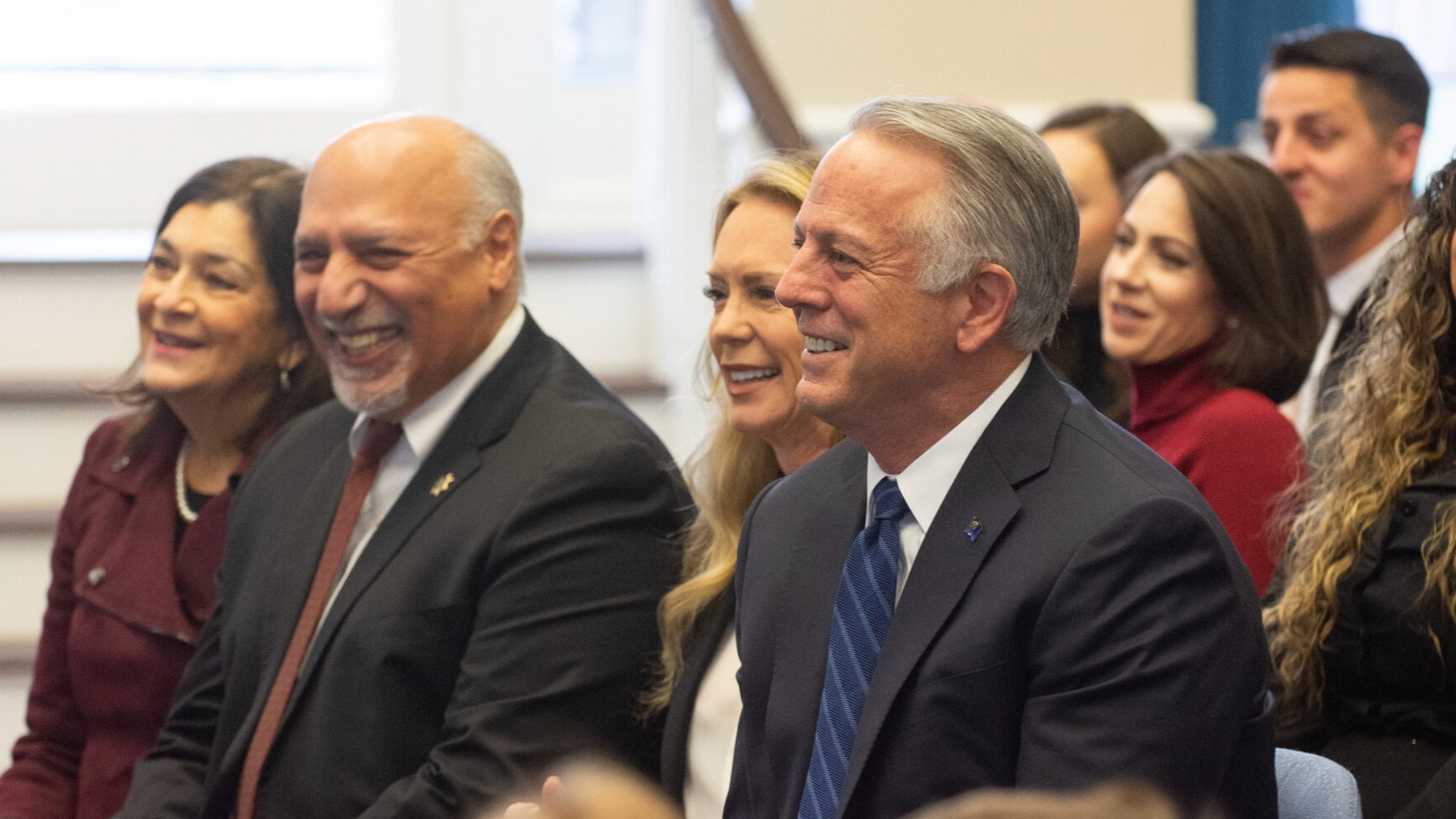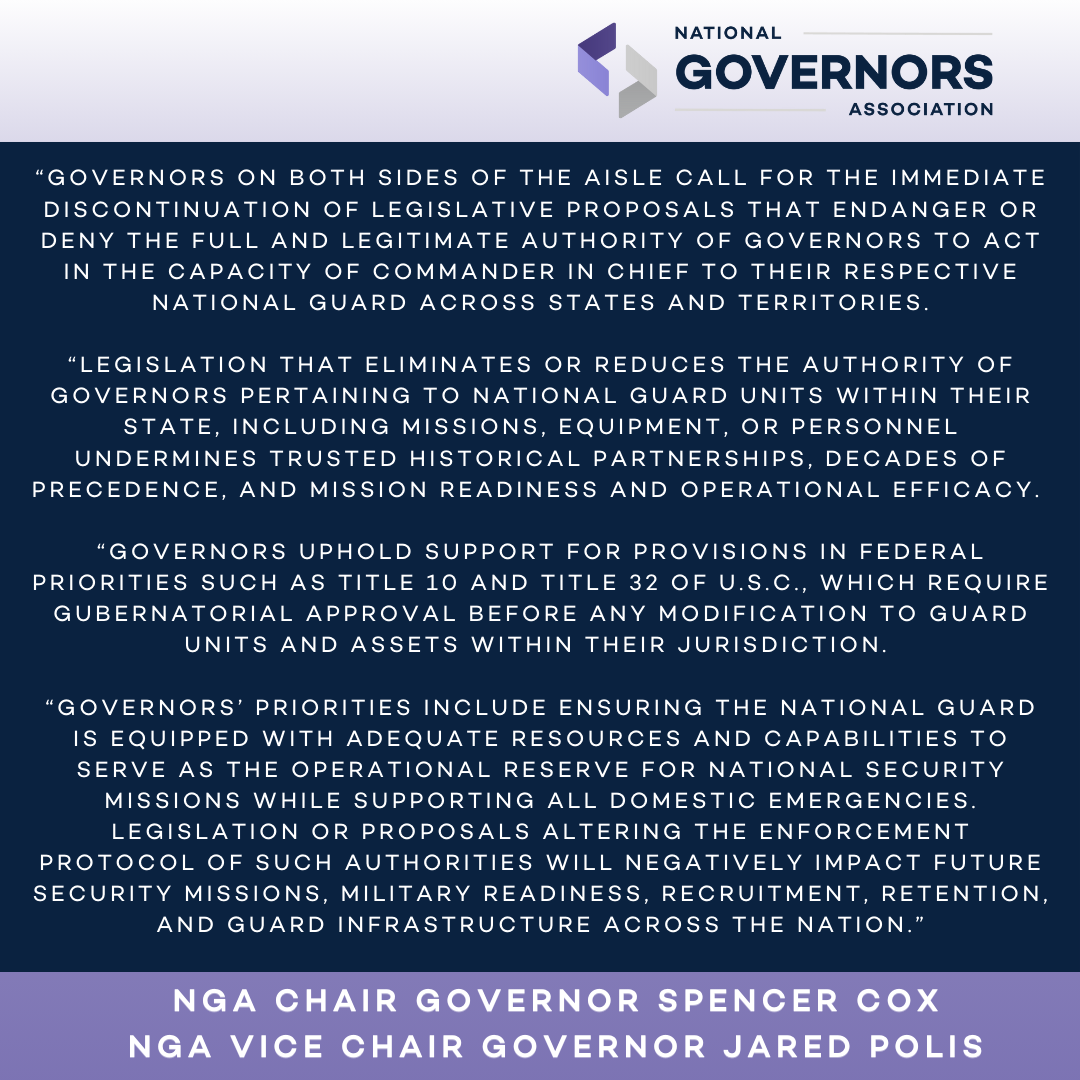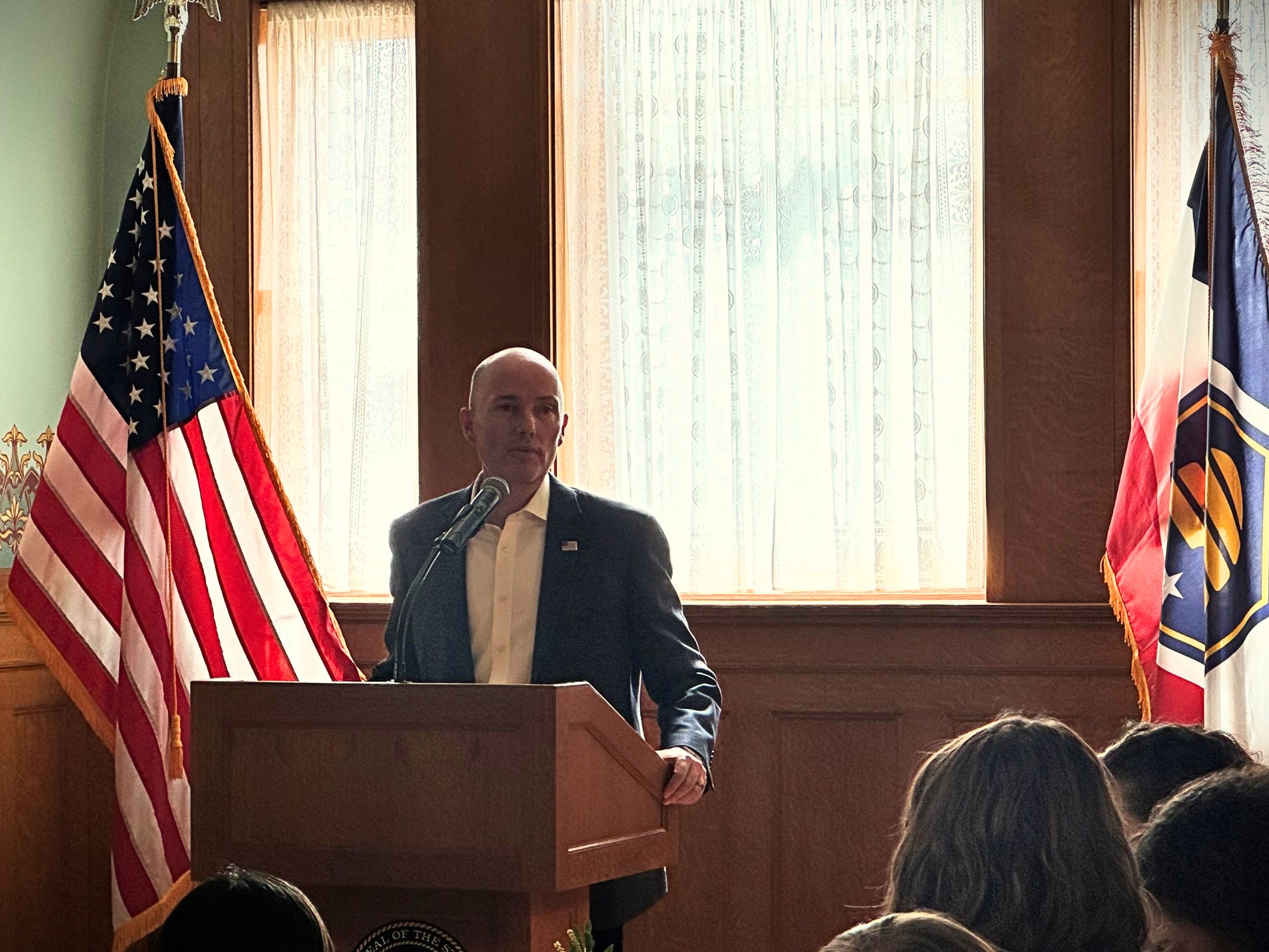June 4, 2020
The Honorable James Inhofe
Chairman
Senate Armed Services Committee
218 Russell Senate Office Building
Washington, DC 20510
The Honorable Jack Reed
Ranking Member
Senate Armed Services Committee
218 Russell Senate Office Building
Washington, DC 20510
The Honorable Adam Smith
Chairman
House Armed Services Committee
2216 Rayburn House Office Building
Washington, DC 20515
The Honorable Mac Thornberry
Ranking Member
House Armed Services Committee
2216 Rayburn House Office Building
Washington, DC 20515
Dear Chairman Inhofe, Ranking Member Reed, Chairman Smith and Ranking Member Thornberry:
On behalf of the National Governors Association (NGA), we write to you regarding the top legislative priorities for the nation’s governors for inclusion in this year’s National Defense Authorization Act (NDAA).
National Guard Response to Pandemics and Catastrophic Disasters
For several years, governors have highlighted to your committees the lack of a defined authority and process for requesting and activating our National Guard under Title 32 in response to large scale catastrophic events. The absence of such a process and authority has been extremely apparent in the response to the novel coronavirus (COVID-19). Given the unprecedented scale of recent disasters and COVID-19, it is clear that the response cannot be supported by states alone for prolonged periods of time.
Early in the COVID-19 response, NGA requested that the President authorize the use of Title 32 for our respective National Guard, and we appreciate the Administration’s willingness to work with us over the past several months.
However, as we noted to congressional leadership last month, the current piecemeal process, based on arbitrary requirements not linked to the mission reality, has been too slow, cumbersome and bureaucratic, ultimately putting our Guard members on the front lines at risk. Additionally, we remained concerned the current termination in August may be too soon for several states and territories.
During a crisis, governors should be able to rely on the federal government to provide guidance, wellunderstood and transparent processes, and resources in a timely and realistic manner. For the use of Title 32, only a legislative solution can provide this level of certainty in the future.
Therefore, we ask you to include legislative language to modify Title 32 in the fiscal year 2021 NDAA to provide a more effective, transparent and rapid activation of the National Guard. Doing so will
ensure our collective response needs associated with catastrophic disasters, pandemics and during times of national crisis are met more rapidly and consistently. This in turn will help to enhance response efforts and provide standardized protection and benefits for National Guard personnel.
Additionally, we ask that you consider authorizing the use of hazardous duty incentive pay for all COVID-19 related National Guard and military missions.
National Guard Full Time Support
Governors and our adjutants general continue to support the growth of National Guard personnel end-strength and full-time support positions. As you know, the National Guard, along with the Department of Defense, saw significant cuts due to the Budget Control Act. Despite congressional budget deal increases, the Guard has seen a smaller fraction of the overall Department of Defense end-strength growth over the past several years.
As affirmed in the Department of Defense July 2019 report to congressional defense committees titled “FullTime Support Effect on Readiness,” full-time support personnel are critical to ensuring the reserve component’s readiness and ability to support the Department’s missions at home and around the world. The ability of the reserve component to proactively and capably ensure adequate administration, recruitment, training, maintenance and supply support is dependent on sufficient full-time support. Guardsmen who are not full-time in nature are supported by this core group of staff, comprising on average 22.2 percent of the reserve component.
Without an increase, governors continue to have serious concerns about the Guard’s ability to maintain a level of readiness that achieves both operational requirements and governors’ immediate response needs in the states. The dual nature of the National Guard, and the needs of the nation in responding to both natural and man-made disasters, necessitates the reallocation of manpower and resources to our Guard.
Along with helping meeting mission needs, governors continue to advocate for full-time support personnel levels that achieve parity between components and services. As such, NGA requests Congress maintains the current Air National Guard staffing level and increase the Army National Guard to 80 percent of validated fulltime support requirements as part of the fiscal year 2021 NDAA.
Work for Warriors
The Work for Warriors Program pilot has been critically successful, matching qualified, unemployed guard members, reservists, military spouses and veterans with job opportunities and employment assistance. States that have utilized this program have created successful, state-run direct employment programs. However, due to lack of capacity, the program is unable to fully expand across the country.
Therefore, we ask that you include authorization for a nationwide Work for Warriors job placement program in this year’s NDAA.
Thank you for your continued support of these top NGA priorities for the fiscal year 2021 NDAA and for our National Guard. For additional questions related to any of the above NGA priorities, please reach out to Ms. Mary Catherine Ott (mcott@nga.org; 202-719-2867), NGA’s legislative director for Homeland Security and Public Safety.
Sincerely,
Governor Gavin Newsom
Homeland Security & Public Safety Committee
National Governors Association
Governor Gary Herbert
Executive Committee
National Governors Association
Cc:
Senate Armed Services Committee Members
House Armed Services Committee Members

